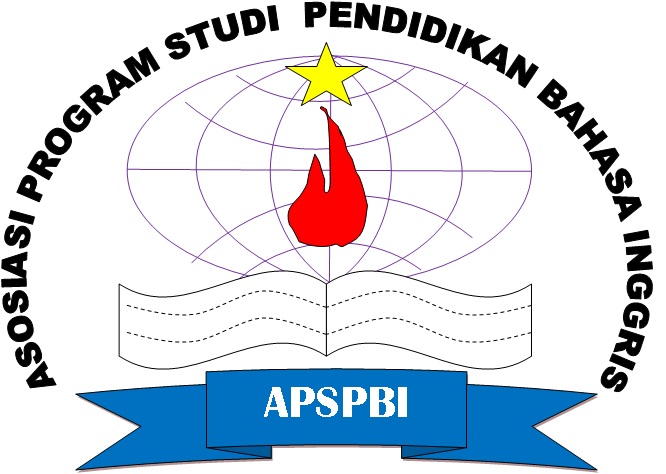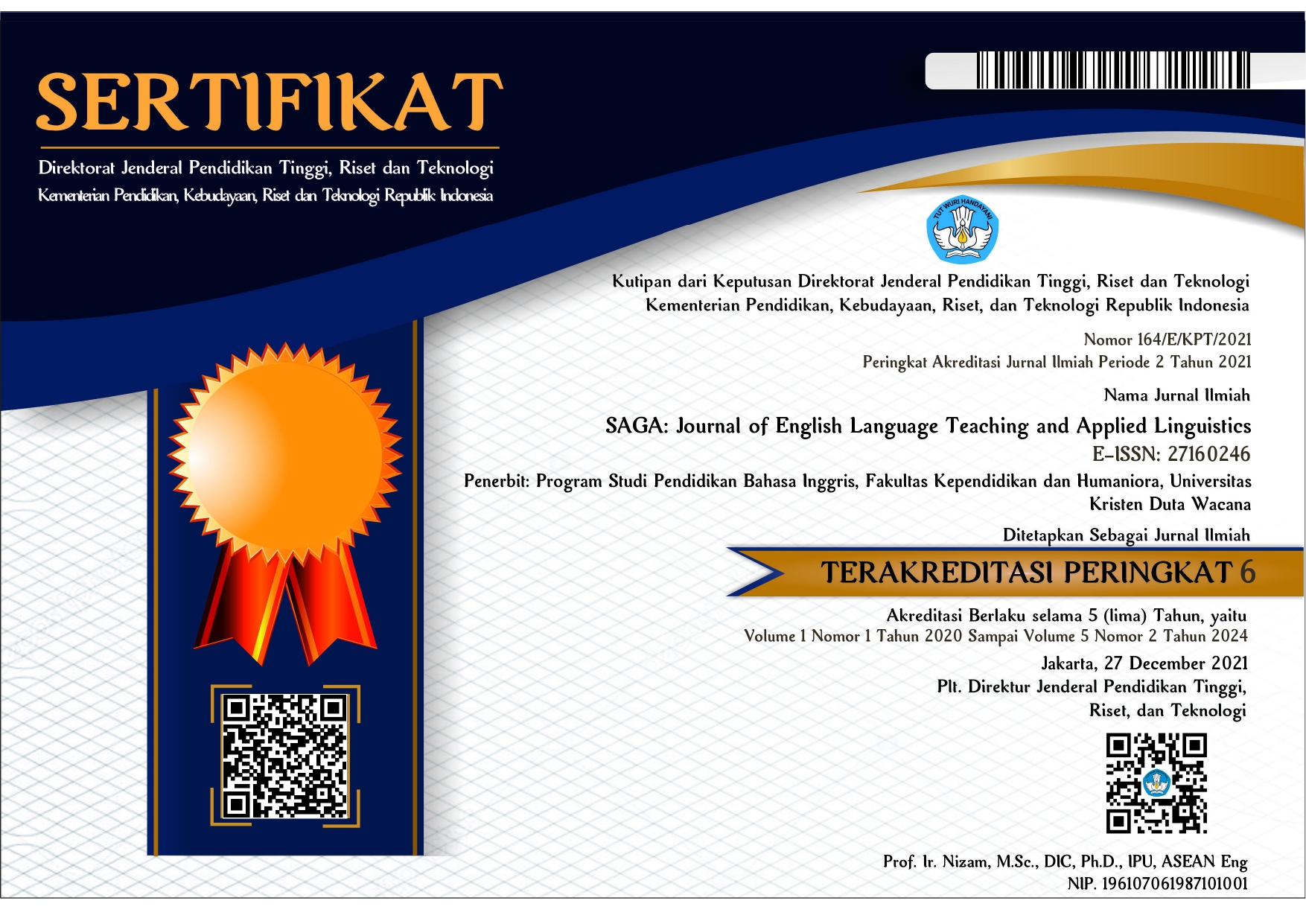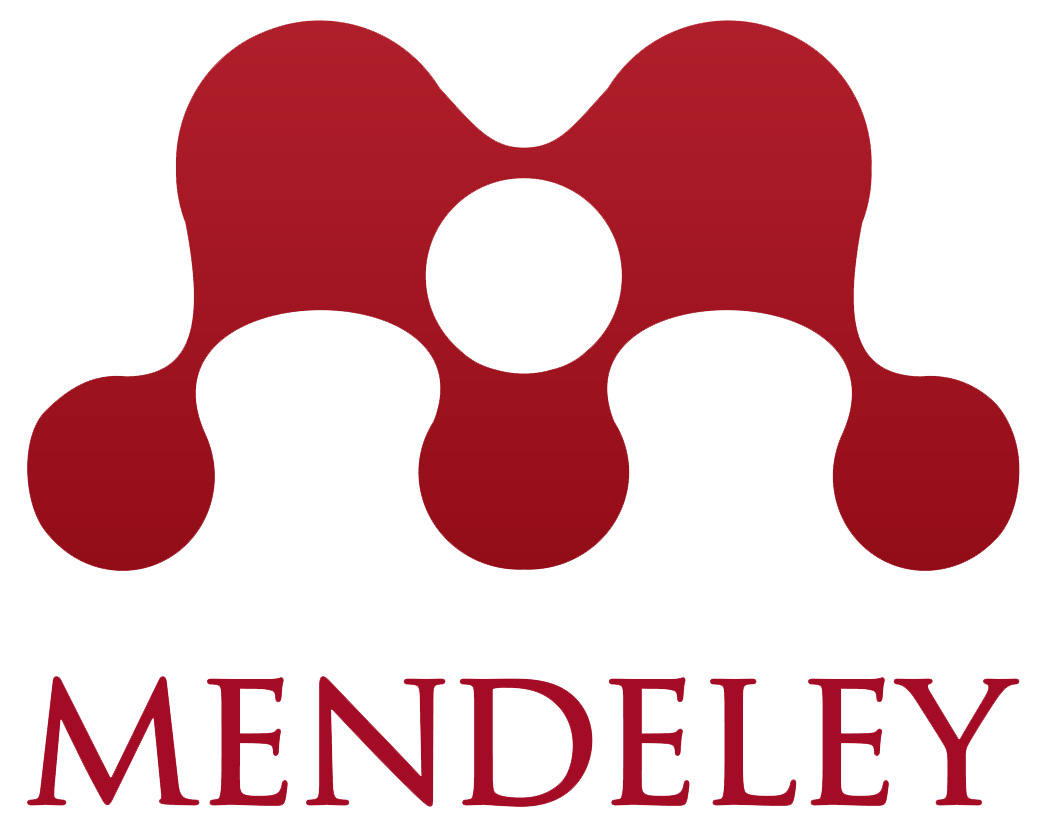Publication Ethics
Publication Ethics and Misconduct Policy
SAGA and its editors will take action to identify and prevent the publication of manuscripts where research misconduct has occurred. For examples are actions of plagiarism, citation manipulation, as well as data falsification or fabrication. In the event that we know any allegation of research misconduct relating to a published manuscript, we will follow the Committee on Publication Ethics (COPE) Core Practices for dealing with allegations.
The following statement, adopted from COPE’s core practices, outlines SAGA’s publication ethics and clarifies the ethical behaviors of all parties involved in the act of publishing a manuscript in SAGA, including the authors, the editors, the reviewers, and the publisher, the English Language Education Department of Universitas Kristen Duta Wacana.
Part A: General Publishing Ethics
- All submitted manuscripts are subject to a strict double blind peer-review process by reviewer(s) that are experts in the content area of the manuscript.
- The manuscripts will be reviewed on its language, relevance, soundness, contribution, originality, and readability
- The post-reviewed manuscripts will be accepted, asked for a revision, or rejected.
- The manuscript acceptance is constrained by such legal requirements as libel, copyright infringement, and plagiarism.
- No manuscript can be published in more than one publication anywhere.
Part B: Author Ethics
- Authors certify that the manuscript is their original work, has not been published, and is not being sent to another publisher simultaneously.
- Authors participate in the peer review process, including but not limited to, providing retractions or corrections of the manuscript.
- Authors state that all data in the manuscript are real, authentic, and new (not reproducing their own work).
- Authors inform the Editor in Chief of retractions or corrections if they find an inaccuracy in their published manuscript.
Part C: Reviewer Ethics
- Reviewers disclose any competing interest before agreeing to review a manuscript and refuse to review due to a conflict of interest or inadequate knowledge of the manuscript content.
- Reviewers conduct their tasks objectively and professionally, with no personal criticism of the author.
- Reviewers express their views clearly by making markups on the manuscript.
- Reviewers identify relevant published work that has not been cited by the authors.
- Reviewers notify the editor when they find any ethical misconduct in the manuscript being reviewed.
Part D: Editor Ethics
- Editors maintain the confidentiality of the manuscript and reviewing process.
- Editors ensure appropriate reviewers of the manuscript are selected
- Editors make decisions on the acceptance of the manuscript solely on its intellectual merit (originality, novelty, and significant contribution to the field).
- Editors are responsible for the content and overall quality of the publication, conforming to the general publishing ethics.
- Editors hold the right to reject, ask for a revision, and accept the manuscript and decide when it will be published.
- Editors take necessary action if encountering suspected misconduct, whether the manuscript is published or unpublished, and make all reasonable attempts to persist in obtaining a resolution to the problem.















